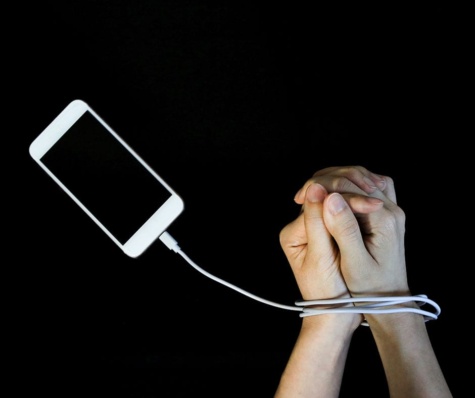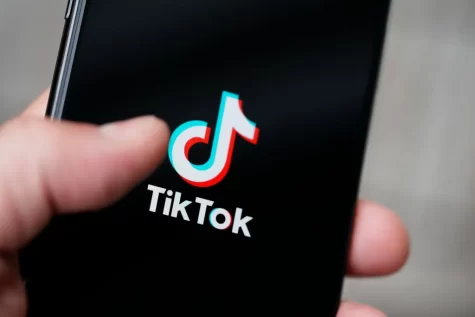
Jenna Forss | Writer
September 23rd, 2022
Your everyday SCHS student has just returned home after a long day at school with a multitude of time-consuming assignments and two-hour sports practice to juggle this afternoon. The only way this student will not be stuck pulling an all-nighter is by preciously utilizing their limited amount of time at home to finish their homework. The student silently vows that they will stay focused on their work, but once drowsiness begins to set in, the student decides to take a small break. The little black screen laying beside them becomes laced with a notification and they cannot help but pick it up, losing control over their fingers as their appendages routinely execute a few swipes and a click. The little musical note surrounded by a mass of blackness enlarges on their screen, and all of a sudden the student is sucked into videos ranging from frivolous dances to political babble. They swipe and swipe and swipe every fifteen seconds – their eyes in an addictive trance – glued to the few square inches that became their entire world. By the time they check the clock, they realize that their innocent ten-minute break turned into a three-hour scroll session. Now they’re going to be late to practice and sleep-deprived by being up late doing their homework, or not getting it done at all.

Does this scenario sound familiar? Almost like a repetitive daily scenario? It’s no secret that today’s youth is addicted to their phones, especially when it comes to the notorious social media app, TikTok.
Almost every Triton has experienced TikTok in some way, shape, or form, but not many people understand how quickly the hours add up when using the app. From a group of 20 randomly selected students, their weekly hours on TikTok ranged from 12 to 30 hours a week.
The format of TikTok videos are a 15-seconds long with some sort of music or “original sound” playing in the background. For jokes, the punchline is speedily delivered, and for informational videos the point is immediate. The norm of 15-second videos for entertainment will lead to watching a tv episode, or god-forbid, an hour-and-a-half long movie, an impossible task. “I really feel like TikTok has made my attention span so short,” said an SCHS junior. The fragile attention span is likely to hinder teens’ performance in the classroom and in their future jobs. Furthermore, it’s also likely to damage youth’s social skills as feeling that the world is full of likes, comments, and messages can seem to make up for all the lessons that come with human interaction.
Along with the monumental impacts of a diminishing attention span that arise after using the app for a long time, immediate feelings of regret and emptiness are another element of worry. These are the emotions that are often provoked immediately after closing the app, leading to mental health problems. There is a sense of emptiness that engulfs people who’ve spent time on the app, and this feeling of sadness is certainly not happening by chance. Social media promotes an image of people looking their best and living their best, and in comparison to their “basic” lives, people feel unworthy and become depressed about their situation.
Another mental health bomb that TikTok drops is the strong enforcement of female beauty standards, made clear when women who fit the beauty standard tend to “go viral,” while those who differ, even slightly, have a load of hate comments to attend to.
People often excuse their consistent use of the app and inability to delete it by wondering how they will be able to keep up with pop-culture and current trends. Many are afraid that they’ll be excluded from their friends or even the world. However, there are plenty of different, less addictive media outlets where they could get their information-fix, allowing them to be connected without being held hostage in the process.
Contrary to popular belief, it is very much possible to make the switch and reap the benefits of a TikTok-free life. Junior Ella Volgebredt stated that after she deleted the app “I got things done a lot faster and I have less screen time. I have more time to do things to help me improve myself and I feel better overall.”
Gain the free time to start that new hobby that you’ve been thinking about for months. Get your homework done on time. Get a few more hours of shut-eye. All you have to do is click the quivering “x” on the corner of the notorious app. Delete TikTok! If this switch seems too drastic it is still possible to limit yourself with Screen Time. Whatever works for you, try it out and see what it feels like to be in control of your time.

Leave a Reply